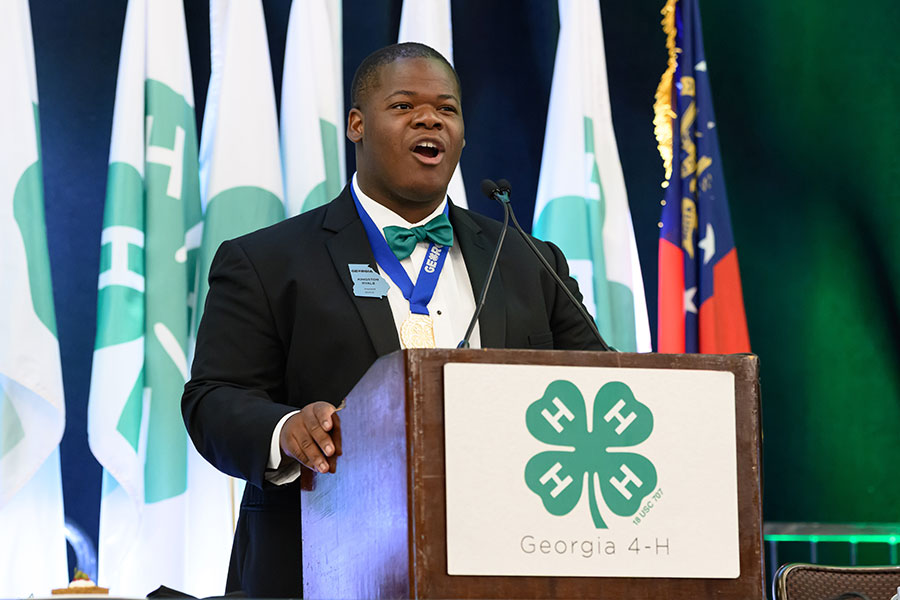By Sharon Omahen
University of Georgia
Jesus Mata knows his family isn't a typical Hispanic family in Georgia. That's one reason he volunteers with a new program that urges Hispanic students to stay in high school and enroll in college.
Mata is a second-generation college graduate and a native of Mexico. His daughter, Sofia, is a freshman at Princeton.
A web designer with the University of Georgia College of Agricultural and Environmental Sciences, Mata is part of a team of UGA volunteers spreading the word about the value of education to Hispanic students and their parents.
Reaching Hispanic students
UGA parasitologist Ynes Ortega started the project with a grant from the University System of Georgia.
"The University System realizes we need to reach Hispanic students and encourage them to finish high school and attend college," said Ortega, a native of Peru.
With the grant funds, Ortega developed magnets, pencils, posters and other printed materials used in information sessions with Hispanic students and their parents. The materials are printed in both English and Spanish.
"A common thread among Hispanics is their Catholic faith," Ortega said. "So we chose to reach the students through their churches."
On weekends, the volunteers visited three Catholic churches within 30 miles of the UGA Griffin campus. They put posters in each church lobby with information about the program, meeting times and places.
Rob Shewfelt, a UGA undergraduate advisor, food scientist and the only non-Hispanic member of the group, told about UGA admission requirements. The others explained why earning a high school diploma and secondary degree is so important.
Sharing personal experiences
Sharing their experiences helped the students realize that earning a college degree is something they can do. Mata pointed them to his daughter's success.
"I made sure the parents and students I talked with understood that colleges look for students who not only have good SAT scores but are involved in their communities," he said. "I told them that Hispanic students actually have an advantage in that most of them speak two languages."
Most of the parents that Mata met knew nothing about the scholarships and grants minority students can get. But most, like other parents, want their children to have better lives than they do.
"It's sad that Latinos in the United States want to make more money for their families, but they don't know how," said Patricia Torres, a UGA research technician, native of Peru and volunteer.
"Many Latinos in the United States work on farms doing manual labor," she said. "The ones who are parents want their children to study more and get an education so they can better themselves."
Improving future generations
Torres hopes that by meeting with Hispanic students and parents, the UGA volunteers can help make a difference in their lives.
"It's hard to convince someone they need to change. They have to want to do it for themselves," she said. "But keeping these kids in school is important for them. And it's important for all Latino people."
The meetings uncovered two groups of Hispanic students. The first were either born in the United States or have lived here most of their lives. They speak fluent English and plan to finish high school and possibly attend college.
"Unfortunately, this is the smaller of the two groups," Ortega said. "The other group consists of recently emigrated Hispanic students with limited knowledge of English. If they did decide to attend college, their legal status would prohibit them from enrolling and obtaining financial aid."
This group is more challenging, Ortega said.
The goal of this program is to promote the idea of attending college, not just UGA. "The spirit is to have them finish high school and go to college," she said.
Although the grant funds end this summer, the group plans to continue until their printed materials run out.






